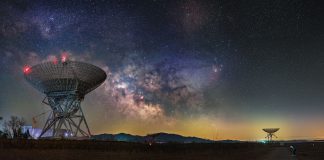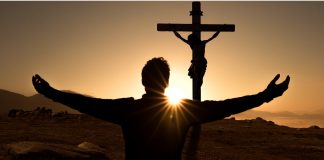Light and shadow in our world of words
“Words are, of course, the most powerful drug used by mankind.” (Rudyard Kipling)
Louis Braille | The blind man who opened their eyes
Louis Braille said: "God was pleased to hold before my eyes the dazzling splendours of eternal hope. After that, doesn't it seem that nothing could keep me bound to the earth?"
Why do some people believe the earth is flat?
Around 10% of Americans and 7% of Brazilians believe that the Earth is flat, that the moon landing was a hoax, and that those vaccinated against Covid-19 unknowingly received a microchip along with the vaccine. Several more percent remain uncertain about the veracity of official information.
Becoming truth tellers on post-truth social media
American President Joe Biden was obviously upset with Meta when, in mid 2021, he accused it of “killing people” for its seeming tolerance of so much Covid-19 misinformation. He backed down a little by clarifying that he wasn’t blaming Facebook itself, but the “bad information” they allowed on the site. Other have argued we live in a post-truth world.
“Can science explain everything?” | Book review
John C. Lennox, Professor Emeritus of Mathematics at Oxford University, is an internationally renowned author and speaker, addressing topics at the intersection of science, religion, and philosophy. Beyond contributions in the field of science, Lennox participated in debates with representatives of New Atheism (R. Dawkins, C. Hitchens, and P. Singer) and wrote several books, including God’s Undertaker, Seven Days That Divide the World,...
Life lessons from Frank the dog
Pastor and author Ed Gungor reckons he’s learned a lot about life from Frank, his small white-haired terrier. So much so that he has entitled his book One Small Barking Dog: How to Live a Life That’s Hard to Ignore.
The wellness expert amateurs who sickened us
In Europe, few people know Gwyneth Paltrow as anything other than an American actress. In the United States, however, her "modern lifestyle" wellness brand called goop is growing her reputation—in a negative way.
What do we do with bad people?
“Can’t good people teach bad people to be good?” Madeleine asked her mother, with the innocence of a seven-year-old.
Our daily E-numbers: an epidemic of suspicion (Part I)
British researcher N. W. Pirie noted as far back as 1969 that few topics give rise to as many myths as food, disease, and gardening. Given the widespread misinformation surrounding E-numbers, there is far too much to cover in just a few pages. However, it is worth clarifying some general aspects that are often misunderstood or completely overlooked.
Literally once upon a time
Fairy tales begin with the words "Once upon a time", which automatically send us into a timeless world of fantasy, imagination, and daydreaming.
The courage to believe
Who was Jesus really? While His historical existence is no longer questioned, many people believe that He was at best an exceptional personality of His time, a reformer whom His disciples later transformed into a deity. Why is neo-atheism concerned with promoting such a Jesus, and why is He nothing more than a new form of doubt?
The illusion of equality and other failures of reason
"Cultural trends now fashionable in the West favour an egalitarian approach to life. People like to think of human beings as the output of a perfectly engineered mass production machine. Geneticists and sociologists especially go out of their way to prove, with an impressive apparatus of scientific data and formulations, that all men are naturally equal and if some are more equal than...
What if I were born into another religion?
This question is asked by critics who want to point out the social, cultural and contextual nature of the Christian religion, and its relativism, presenting it as a product of society rather than of revelation.
The testament of Jesus
We experience a feeling of urgency as a consequence of the fear of failure, or the fear of missing out (on people, opportunities, time, good things). Urgency is, therefore, a corollary of fear. Today’s Christianity, hailed by loud voices as near extinction, can easily fall into the trap of undue urgency to quickly regain what has been lost.
Decoding Jesus’s cryptic message
Biblical interpretation is undoubtedly one of the greatest challenges for the Bible reader. What are the essential hermeneutical principles we need?


























